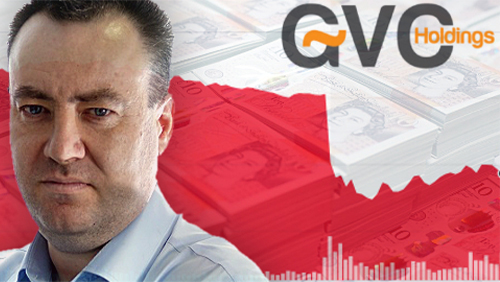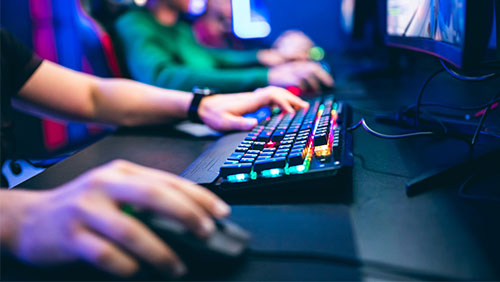This week is a recap of Questing’s victory in the July 21, 2012 Coaching Club American Oaks (G1) at Saratoga Race Course. The recap, written by Teresa Genaro, ran in the July 28, 2012 magazine issue. It carried the headline “Quick Test.”
Monthly Archives: July 2020

Dutch online gambling plans up for review by the European Commission
Slowly but surely, eventually, someday, the Netherlands will see legalized online gambling. After the Remote Gambling Act (RGA) was approved 17 months ago, Dutch officials have been putting together the framework to manage the activity, but several delays have come about as parts of the structure have had to be reworked more than a few times. The good news is that everyone has finally come together on the language and the RGA is now on its way to the European Commission (EC) for its review.
As it stands now, barring any changes requested by the EC or massive blowback from the gaming industry, online gaming is expected to come to the Netherlands on July 1 next year. In anticipation of that launch, Kansspelautoriteit, the Netherlands’ gambling regulator, will start accepting license applications from operators on January 1. The regulator is confident that it will be able to adhere to its schedule now that things are falling into place.
Dutch authorities plan on being very proactive with oversight of the industry and licensees should be prepared to keep their operations open to regulators at all times. The Kansspelautoriteit just released its “Market Vision” (in Dutch, in pdf) plan this week, which details how it will oversee the market. That framework also received input from the Netherlands Ministry for Legal Protections, the agency headed by Legal Protection Minister Sander Dekker. Dekker has been somewhat resistant to online gaming, and last month said that progress could be delayed if the Kansspelautoriteit wasn’t able to confirm that it could properly manage the activity.
Dekker was also involved in the formulation of the RGA. He is partly responsible for the inclusion of strict operator controls that are designed to force adherence to a more responsible framework. Once the EC signs off on the RGA and the Netherlands can put it into force, operators chosen to launch in the country will face continuous audits of their customer care activities, player databases, player interactions and much more. The RGA doesn’t provide a great deal of clarity on how punishments for violations may be levied, but there’s little doubt that the Netherlands plans on being very strict with its controls.

Dan Snyder ousted by scandal? Updated Washington Redskins name odds
Big news appears to be on the way for Dan Snyder and his Washington Football Team. As sports bettors have given a firm vote of confidence to what they think the team’s new name will be, rumors are starting to swirl that a huge expose is on the way that will rock the organization to its foundations.
Dan Snyder started to trend on Twitter on Thursday morning, and those deep into the team’s gossip have some suspicion as to why. Rumors have it that the Washington Post is working on a piece that will expose a huge scandal that could force Snyder into selling the team:
Anybody wanna buy a football team? Dan Snyder pic.twitter.com/4tJzbv6NAL
— Biracial Brother (@Jonesdc) July 16, 2020https://platform.twitter.com/widgets.js

Resorts World Singapore lays off as many as 2,000 employees
Business isn’t improving fast enough for Resorts World Sentosa (RWS), the Singaporean integrated resort owned and operated by Genting Singapore. The company has revealed it must lay off staff as a lack of tourism continues to strangle the business.
The Straits Times reports RWS are laying off approximately 2,000 employees as part of a “one-off workplace rationalisation.” The operator did not confirm though exactly how many of its 7,000 employees remain after the cuts. “We have made the difficult decision to implement a one-off workforce rationalization,” the company said in a statement.
RWS was cleared to reopen, following a long shutdown from the COVID-19 pandemic, on July 1. However, that brought significant restrictions, allowing only upper-tier members of customer reward programs to play, as well as locals who’ve paid SG$3k that gives them unlimited access to the casinos. That’s something, but without tourism to buff up revenues a bit, it just wasn’t enough to save these employees’ jobs.
The operator lamented the affect a lack of tourism has had both on itself, and Singapore as a whole. “Its pervasive and lasting effects will accelerate shifts in the tourism industry that require significant adjustments by all travel and tourism players,” RWS noted.

Sci Games chairman reportedly looking to dump entire stake
Gaming industry backer Ronald Perelman, not to be confused with Sons of Anarchy and Hellboy actor Ron Perlman, is looking to lighten his load. The chairman of Scientific Games Corp. (Sci Games) is reportedly looking to get rid of his entire stake in the company, a move that seems a little ill-timed, given the fact that Sci Games has seen its stock drop from a 2020 high of $30.24 on February 12 to its current price of $16.19. Regardless, people have the right to do what they want with their money, and perhaps the 79th richest man in the U.S., according to Forbes, has good reason for wanting to back away.
In a filing with the Securities and Exchange Commission (SEC) yesterday, Sci Games indicated that Perelman is considering selling off his 39% stake, a position he maintains through direct and indirect holdings attributed to several companies, including MacAndrews & Forbes, an investment vehicle that also owns stock in companies such as Revlon, AM General and more. He is only exploring his options, according to the statement and still hasn’t “formulated any specific or definitive plan or proposal.” In addition, “there can be no assurance that any transaction will occur or as to the terms of any such transaction.”
Bloomberg was able to get more information regarding the possible deal and, in a statement it received from MacAndrews & Forbes, the firm indicated, “Due to changes in the world both socially and economically, we have decided to reset MacAndrews & Forbes in a manner that will give us maximum flexibility both financially and personally. This will allow us to be opportunistic and flexible in looking at new situations.”
It was only a year ago that Perelman broke out the wallet to increase his stake in the company. In June of last year, he was said to have spent about $4.60 million to pick up 230,000 shares. Since then, and primarily due to the coronavirus, the company’s stock has seen its ups and downs. That’s good news for any potential buyer, as the selling price would be almost guaranteed to see substantial returns moving forward.

Metro Manila casinos to stay on lockdown through the end of the month
Metro Manila has had a rough time because of the coronavirus pandemic, and seems to be suffering more than other areas of the Philippines. It has been on General Community Quarantine (GCQ) for the past several months, while other regions of the country have been able to move to modified or no quarantines. If casinos had hoped for a change this week, they can stop holding their breath. Metro Manila will remain on GCQ until the end of the month, and could even face tighter restrictions.
After five months of being on forced lockdown, Metro Manila casinos and other businesses had been watching the clock as yesterday approached. The GCQ was initially set to expire at the end of the day yesterday, but, according to presidential spokesperson Harry Roque, it had to be renewed until July 31. Metro Manila has seen a spike in COVID-19 cases and, if the trend continues, the new deadline could be extended, as well. A spike could also lead to the government enacting more rules to control movement in the region.
Roque explained in a press conference, “There was a recommendation from UP to revert Metro Manila back to MECQ [“modified enhanced” community quarantine] to slow down the spread of the disease. At first, the President agreed but our chief implementer and our Secretary of Interior appealed to reconsider because our Metro Manila mayors vowed to strictly enforce localized lockdowns, enhance testing, tracing and treatment, and implement expanded restrictions under GCQ. So, the President agreed not to revert Metro Manila to MECQ for the next two weeks.”
President Rodrigo Duterte made the call after receiving input from the Inter-Agency Task Force on Emerging Infectious Diseases, which had also recommended implementing the tighter controls immediately. However, he decided to only extend the GCQ to allow local mayors time to live up to their promises that they would take control. If they don’t, however, Metro Manila residents could face drastic measures.

GVC announces 11% drop in H1 NGR, CEO Kenneth Alexander retires
On the heels of announcing their trading update, GVC Holdings have made big news by announcing the departure of CEO Kenneth Alexander. The operator made the announcement in a July 16 press release.
Alexander, 51 years old, is officially retiring from the organization to spend more time with his family. He spent 13 years in the role of CEO for the company. GVC noted that he will be succeeded by Shay Segev, Chief Operating Officer effective at the end of July 17.
“I have given 13 years to GVC and I now want to give some time to my family,” Alexander wrote. “I have enjoyed every minute of helping to grow GVC into the business that it is today, and am proud of all that has been achieved. We have the best people, brands and technology in our sector, and our joint venture in the US with MGM Resorts positions us very strongly for growth in that hugely exciting market.”
The isolation of COVID-19 helped influence his decision, and he relayed his confidence in Segev. “I have spent the last four months working from home and reflecting on my future plans, and this feels like the right moment,” he noted. “Whilst it is never easy to hand the baton on, it has been very clear for a number of years now that Shay is the right person to succeed me. He is an outstanding leader with a clear strategic vision and unrivalled technological expertise. As a shareholder, I know that our Company will be in good hands. He is also a firm advocate for the strongest possible protection for customers, and shares my philosophy that only a responsible company can be a sustainable and successful company.”

Aussie firm PlayUp set to tackle US market
Australian firm PlayUp has signalled its intention to capitalise on the lucrative U.S. sports betting market. The Australian company sees the U.S. market as their next growth frontier and have appointed gaming veteran Dr. Laila Mintas as Chief Executive Officer of its U.S. office. Dr. Mintas is tipped to provide a strategic voice to PlayUp’s global expansion and was Vice President at Sportsrader.
PlayUp’s growth in the Australian market left an impression on Dr. Mintas:
“I am very excited about the opportunity to establish PlayUp as a strong and innovative sports betting brand in the U.S. I am very impressed with what the team in Australia has established over a short time period.”
Dr. Mintas believes that PlayUp unique betting platform could give them an edge in the U.S.:

Rhi Burns joins Zimpler’s Lead Team
It’s been just over a year since Rhi Burns joined Zimpler as CCO — now she picks up co- founder Johan Friis’ position as manager over the Sales Department and his seat in the Lead Team. Friis has headed up the sales and account management department since the company’s foundation, but to facilitate the recent massive growth he, together with the Lead Team, have decided it is time for change.
“Now Zimpler is around 40 people, and I feel that the position of Sales Director requires a skill set of someone exceptional at processes, remarkably structured, fantastic at internal communication and who loves to do business. Rhi fits those criteria, and many more”, Friis says.
“As CCO, I’ve been committed to structure the sales processes and growing the revenues and the department, but it’s so exciting to take this next step up and have that support and faith from Johan and Kristofer (co-founders), Oskar (CEO) and the board”, says Burns.
As well as bringing more structure to the fast growing company, this is also a leap in the right direction for diversity in the management team.

Ninjas in Pyjamas partner with Esports Charts to crunch the numbers
The latest Esports partnership that will be looked at towards making both a team and the overall game better has been confirmed as between Swedish Esports team Ninjas in Pyjamas and the game data analysis firm Esports Charts.
Swedish team ‘Ninjas’ have had a long and complex history, with their initial formation coming as a Counter-Strike team in 2000, before its abrupt ending in 2007. The team returned in 2012, however, and as a Counter-Strike: Global Offensive (CS:GO) team, under the management of Robin Jedhammar and the captaincy of ‘hampus’, have gone from strength to strength.
To date, Ninjas have won just under $3 million in prize winnings and in order to improve, they will be powered by data provided by Esports Charts, who already provide teams such as Astralis Group, Natus Vincere and Alliance with analytical data and statistics for events there to help the team compete to an even better level in the future.
Esports Charts’ CEO said in a statement: “Seemingly invisible and stealthy “ninjas” are the deadly rivals for every team in every discipline, wherever they participate. They, more than anyone else, clearly know their goals and move towards victory. Esports Charts, using ninja reflexes, will promptly and surgically react to the changing trends of the esports market and fully support Ninjas in Pyjamas with their data.”
ABR and Breeders' Cup Announce Live Streaming Show
America’s Best Racing and the Breeders’ Cup announced the launch of a new live-show series titled #BCLive: Breeders’ Cup Live!
NYRA Releases Guidelines for Owners Attending Saratoga
A limited number of licensed owners will be permitted at Saratoga Race Course on the day that their horse is entered to race beginning July 17, the New York Racing Association announced July 15.
With Less Fanfare, Live Oak Takes Top Florida Honors
The Florida Thoroughbred Breeders’ and Owners’ Association has announced its Florida-bred champions for 2019. For the 16th time, Charlotte Weber was honored with a Florida-bred champion bred by her Live Oak Stud and owned by her Live Oak Plantation.
Tiz the Law Tops Kentucky Derby Future Wager Pool 6
Sackatoga Stable’s multiple grade 1 winner Tiz the Law is the expected favorite in Pool 6 of the Kentucky Derby Future Wager, which will run July 17-19.
Canterbury Park Updates COVID-19 Protocols For Jockeys
Only Thoroughbred jockeys riding at Canterbury Park are eligible in races there.
Tonalist's Shape Dons Blinkers for Coaching Club
Tonalist’s Shape is 6-for-7 and a winner of four stakes, and still, her racing potential may not have been fully realized. That might happen July 18 when she adds blinkers in the $350,000 Coaching Club American Oaks (G1) at Saratoga.
Additional 500 Haskell Tickets Approved for Sale
Monmouth Park announced July 15 that it has been authorized to put an additional 500 general admission tickets on sale for Saturday’s TVG.com Haskell Stakes (G1), with the release of those tickets starting at 6 p.m. at www.monmouthpark.com.
Summer Assault Earns Stakes Win in Mystic Lake Derby
Summer Assault snuck up the rail at the top of the stretch in the $100,000 Mystic Lake Derby at Canterbury Park, and outran favored Angelus Warrior and Creative Plan in the lane to score by one length at the wire July 15.

Report: betting data supplier Sportradar mulling SPAC route to public markets
Sports data supplier Sportradar is said to be the latest betting-connected company plotting a public listing through a reverse takeover by an already listed firm.
On Wednesday, Brendan Coffey, a writer at sports business journal Sportico, reported that sources had informed him that Sportradar was “exploring plans to go public,” likely through a ‘special purpose acquisition company’ (SPAC) aka a ‘blank check’ firm that has already undergone the onerous initial public offering rigamarole.
Coffey had little other details to share and Sportradar’s management is reportedly not interested in furthering this discussion, at least, not publicly. The identity of Sportradar’s possible suitor is similarly unknown but whoever comes-a-courting better have some seriously deep pockets.
The Swiss-based Sportradar is (for the moment) privately held, so it’s not required to release its financial data for analysts to pick over every three months. But the sale of a minority stake in the company in mid-2018 put a $2.4b valuation on the company, and that was only two months after the US Supreme Court struck down the federal sports betting prohibition.
Industry Figures Get Behind Tattersalls' Newest Sale
The Tattersalls August Sale has been added to this year’s European sales calendar and prominent figures on both sides of the docket have given the Aug. 25-26 event at Park Paddocks their seal of approval.